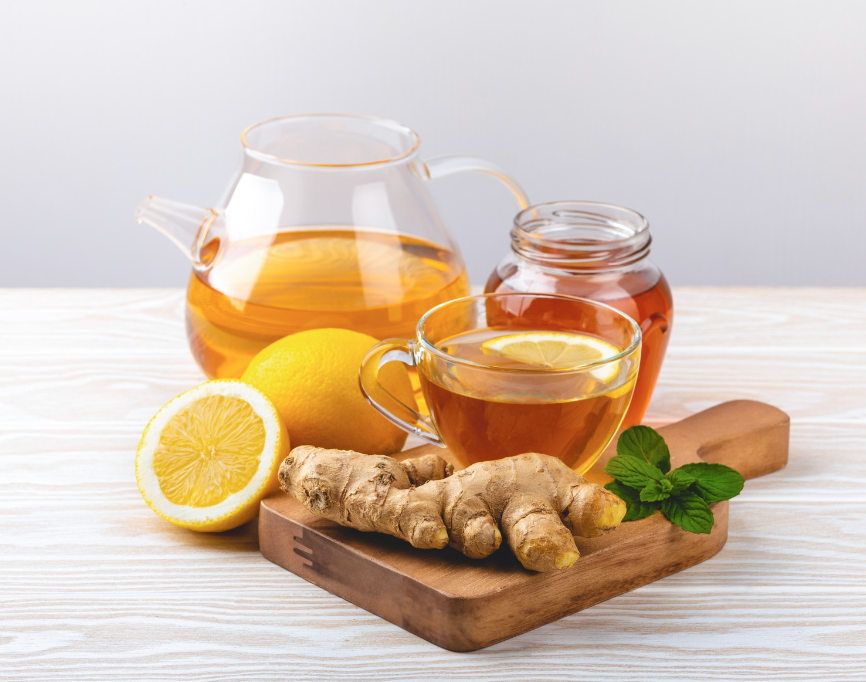
It’s December! And it’s snowing! It feels like we are officially in the Winter season! Let’s look at Winter through an Ayurvedic Lens!
Ayurveda is the “Science of Life”! We can look up to Ayurveda for all aspects of our lives. Ayurveda has recommendations for the right diet and lifestyle practices for each season, known as ‘Ritucharya’ as it is in Sanskrit.
‘Ritu’ translates to ‘Season’. ‘Charya’ translates to ‘Rituals’
As the whole world begins to slow down and go inward—it gives us the opportunity to do the same!
I feel that Mother Nature should always be our inspiration for how we live our lives on a daily basis. It provides us everything that is needed for the present moment. It is up to us to work harmoniously with the mother nature and be in sync with it! It is this harmony and balance that allows us to live a healthy and happy life!
Winter is a time for rest and rejuvenation! It embodies qualities of peace and harmony, but can also trigger sensations of heaviness, fatigue, and lethargy as this is a Kapha dominant season with a Vata undertone carried over from the previous season!
Vata (ether + air) is dry, rough, windy and cold.
Kapha (earth + water) shares the attribute of coldness with Vata, but also embodies moisture in the form of rain and snow, as well as a sense of heaviness, dullness, and fatigue.
Generally, the beginning of winter possesses stronger Vata (dry) attributes, while late winter and early spring lean towards Kapha (wet). To make it easy to understand, if it is raining/snowing—Kapha is dominant. If it is dry and cold—Vata is dominant.
Vata’s light, dry, rough & ungrounded qualities can lead to dryness (internally and externally), as well as feelings of fear, worry & anxiety. I am sure many of us have experienced dry skin in early winters. On the other hand, if you keep your vata in balance you may experience heightened creativity, connection and action.
Kapha’s damp, heavy & sluggish nature can result in increased congestion, constipation, weight gain, water retention, lethargy, procrastination, and depression. On the other hand, if we keep kapha in balance, this season has the potential for true introspection and self-healing. It is the time to build stronger bonds with family and friends, improve relationships, nurture and care for each other. Give and receive love.
Each season pacifies or ignites certain energies within us, meaning that our systems can be thrown out of balance if we don’t take the correct measures to adapt with the season. As Kapha is dominant in the environment during winters, our lifestyle and diet should work to pacify its qualities, so that we can avoid an accumulation or aggravation of its qualities. By using Ayurvedic principles, to adapt our diet and lifestyle practices, we are able to access and utilize the true objectives of each season, without being burdened by seasonally induced imbalances.
Here are some Ayurvedic tips for the Winter Season: –
- First of all, did you know, our digestive capacity is at its strongest in winters? Yes, we need more substantial, nourishing, heating foods to fuel our increased appetite! Therefore, now is the time to indulge in hearty meals consisting of healthy fats & oils, winter vegetables, whole grains, legumes, nuts & seeds and lots of spices!
- Focus on curries, soups & stews containing vegetables like sweet potatoes, yams, winter squashes, carrots, beetroot, radishes, spinach, asparagus, okra and other greens. Look for seasonal fruits and vegetables in the farmer’s markets. Whatever is in season is actually the right fit for us for that season. Never doubt mother nature! It does its best to provide us with what’s right for us for that season! And the good thing is seasonal fruits and vegetables are actually cheaper!
- Incorporate hot spices like garlic, ginger, turmeric, black pepper, mustard seed, paprika, cayenne and chilli. (Caution-if you are pitta dominant, use hot spices in moderation, even in winters)
- Avoid fasting or skipping meals.
- Avoid anything cold or frozen.
- Avoid or reduce dairy products, as they lead to congestion.
- Drink warming herbal teas- ginger, cinnamon & clove. This provides heat, improves circulation and clear respiratory passages.
- Do regular exercise to keep the circulation moving! Avoid being sedentary. If outdoors is too cold and windy, be active indoors! Engage in invigorating exercise to burn off the extra food that is usually eaten in winters. This will build internal heat, increase sweat to eliminate toxins and will allow us to move through the dormant qualities of winter.
- Do yoga, meditation and pranayama on a daily basis.
- Daily Abhyanga (self-massage) with warm sesame oil is highly recommended.
- At bedtime apply some warm sesame oil on the soles of your feet and if possible on the scalp to calm down vata and aid in sound sleep.
- Keep warm and dry. Wear a warm beanie as more than half of the body’s heat is lost from the head. Plus cover the ears and neck to keep warm if you are outdoors.
- Get sun exposure whenever possible, connect with nature and receive the healing rays of the sun.
To learn all about how to balance your Doshas using an Ayurvedic diet and lifestyle, Check out OUR SELF-PACED ONLINE COURSES that include a perfect blend of Holistic Nutrition and our 5000-year-old ancient Ayurvedic wisdom!
- Basics of Ayurveda
- The Digestion Immunity Connection
- What’s your Dosha?
- The Basics of Healthy Eating
- Manage Back Pain with diet and lifestyle
- The Complete Guide to Stress Management
CONNECT WITH US & BE THE FIRST ONE TO RECEIVE DISCOUNT COUPONS FOR ANY OF OUR SERVICES!
NAMASTE,
Preeti Syal
M.Sc., R.H.N., Certified Ayurvedic Lifestyle Consultant
The content provided in my blogs is for knowledge-sharing purposes only and is not intended to be a substitute for professional medical advice, diagnosis or treatment.


